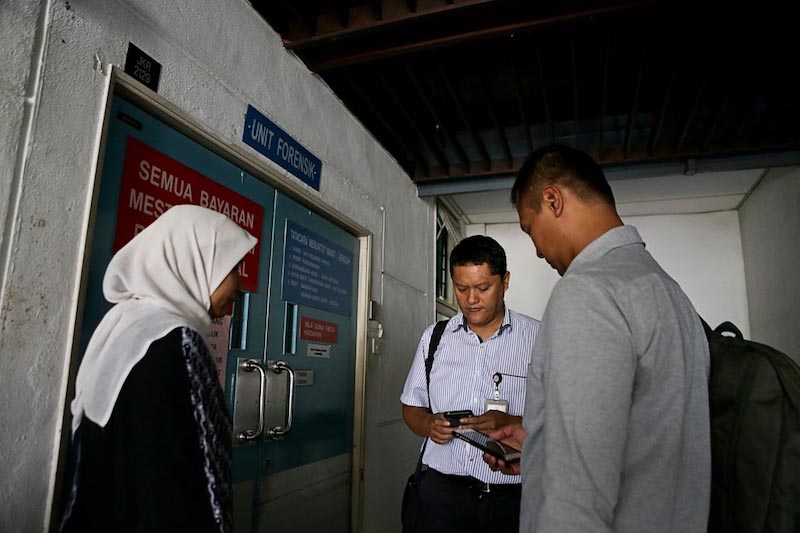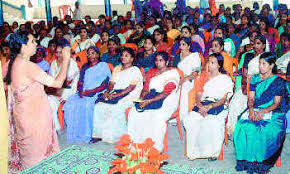
Indonesian officials wait to retrieve Adelina Lisao’s body
On Saturday, February 10, 2018, 26-year-old Adelina Lisao was “rescued” from her employers’ house. She was taken to hospital, where she died on Sunday. Adelina Lisao was one of hundreds of thousands of domestic workers in Malaysia. Most of those workers are Indonesian and Filipino. For weeks, Adelina Lisao was tortured, often in plain sight and earshot of neighbors. The sort of violence visited upon Adelina Lisao is not an unusual occurrence for Indonesia and Filipina domestic workers in Malaysia, as has been documented for decades. Adelina Lisao died on Sunday. On Monday, the Indonesian government demanded “justice for Adelina.” On Tuesday, the press announced, in headlines, “Death of maid treated ‘like a dog’ casts spotlight on migrant abuse in Malaysia”. Just because there’s a glimmer in the dark doesn’t mean that a light is shining. If history is any guide, by Friday, Adelina Lisao’s named will be filed away and forgotten, and the mass abuse will continue.
In 1997, Christine B.N. Chin, a scholar of transnational migrant women’s labor, studied “the distinct ways in which public walls of silence continue to surround the absence of labor rights and benefits for foreign female domestic workers in the receiving country of Malaysia.” Chin noted that, despite the best efforts of Malaysian ngo’s, “efforts to break down public walls of silence surrounding the absence of labor rights and benefits for foreign female domestic workers have met with little success.” Twenty years ago, the situation of Indonesian domestic workers in Malaysia was recognized as an already longstanding issue. Since then, the public walls of silence have only grown thicker and higher. There is no spotlight nor loudspeaker breaking through that wall, not as yet.
In 2004, Human Rights Watch published a report on abuses against women domestic workers in Malaysia, which began: “In May 2004, graphic photographs of the bruised and burned body of Nirmala Bonat, a young Indonesian domestic worker in Malaysia, were splashed across newspapers in Southeast Asia. In a case that drew international attention and outrage as well as a prompt response by both the Malaysian and Indonesian governments, Bonat accused her employer of brutally beating and abusing her.” Who remembers Nirmala Bonat? What is the life span of “international attention”? Where is the outrage today?
According to the ILO, in 2016, Malaysia employed 300,000 to 400,000 domestic workers, almost exclusively from Indonesia, Cambodia and the Philippines. In 2010, approximately 230,000 Indonesian women worked, legally, as domestic workers in Malaysia. In 2015, Malaysia and Indonesia met to discuss “ways to improve protection of Indonesian domestic migrant workers in Malaysia.” Where was that “protection” while Adelina Lisao was being abused, tortured, demeaned, starved, beaten, and all in plain sight?
Indonesia should have demanded justice for Adelina Lisao long before she arrived in Malaysia. Malaysia should have demanded justice for Adelina Lisao as well. Adelina Lisao, this week’s moment of “international attention and outrage”, cannot be merely another empty sign. She is the brick and mortar of success in the now-decades-old new economy. A specter haunts the world … and her name is Adelina Lisao.
(Photo Credit: Sayuti Zainudin / The Malay Mail)

